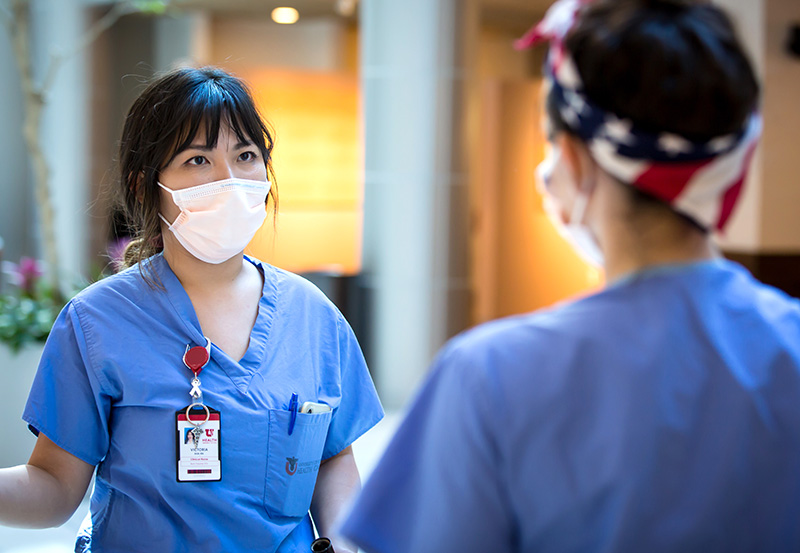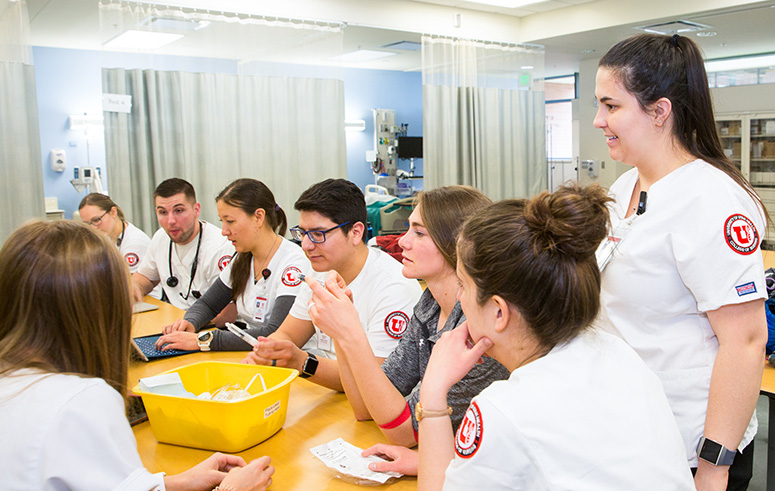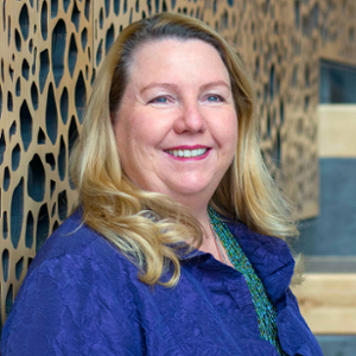Voices of U of U Health
Collaborating With Utah's Juvenile Justice System
Historically, incarcerated individuals have not received the level of health care that we consider a basic human right. Residential Juvenile Justice Facilities are in every state and represent a diverse and underserved population. Since 1998, Utah’s Division of Juvenile Justice Services (JJS) and the College of Nursing (CON) have partnered to provide this particularly vulnerable population with high-quality physical and behavioral health care. Through this partnership, CON faculty and staff provide interdisciplinary health care services to incarcerated youth (ages 12-18) in secure detention facilities across the Wasatch Front.
Longstanding Partnership
When this work began 23 years ago, we offered basic nursing services and had just one physician who worked in only one facility. Over the years, we have grown the service and now have three part-time advanced practice registered nurses (APRNs) who provide care in each of the JJS facilities, anywhere from one to three times a week, depending upon the number of youths being housed and those newly admitted. Registered nurses (RNs) provide onsite care in the JJS facilities between five and seven days a week, eight to ten hours a day.

Youth are brought into detention facilities for both minor offenses, such as breaking curfew or painting graffiti, and for major offenses, to await adjudication. Some are brought in under the influence of drugs or alcohol and are watched closely as they detox from the effects of illicit substance use. Others are brought in directly from fights or car accidents and must be screened for injuries. If a youth is not stable, the arresting officer will be directed to take the offender to the emergency room for medical clearance.
Health Assessment Upon Admission
Within the first 48 hours after youth are admitted, our care team provides an initial health assessment and interview to determine if there are any medical complaints or issues that need to be addressed immediately. Upon admission, youth are screened and tested for sexually transmitted infections and queried about trafficking. Within the first 30 days, those admitted to the facility will have a complete physical examination by one of our nurse practitioners. The APRNs also manage any acute and chronic medical conditions youth may have. The CON staff oversees prescription medication administration and coordinates care with other medical and mental health providers. Proactive activities such as health education and immunizations vary according to the facility.
The CON works closely with the Department of Pediatrics by partnering with Nicole Mihalopoulos, MD, MPH, associate professor in pediatrics, as our medical director. Dr. Mihalopoulos provides consultation services for youth who may have complicated conditions considered unusual or abnormal.
About five years ago, the CON added psychiatric mental health nurse practitioners to our care team. Some incarcerated youth are admitted on psychotropic medications, and others are diagnosed while in custody, so treatment is initiated at that time. Youth receiving treatment for behavioral health issues will meet with Social Workers from JJS, and, if medication management is needed, will receive care and oversight from our team. The CON works closely with Kristi Kleinschmit, MD, assistant professor and child psychiatrist. Dr. Kleinschmit provides consultation on cases where there are comorbid psychiatric disorders that may go beyond our scope of practice.
Adolescents in general have multiple oral health care needs, and those in custody are no different. In July 2021, the CON partnered with the U of U School of Dentistry for the provision of oral health care for JJS youth.
We have had some high-risk situations that require hospitalization. When this occurs, our partnerships within the university are important and help facilitate access to University Hospital and Clinics, Huntsman Mental Health Institute, and Primary Children’s Hospital to ensure we're providing holistic care.
Service Beyond Clinical Focus
Not every service provided has a clinical focus. The College of Nursing juvenile justice group works with law enforcement and other agencies that study human trafficking and how to find and help adolescents caught up in its devastating web. Jennifer Clifton, DNP, FNP-BC CNE, CCHP, associate professor, is our clinical director for CON’s contract with Juvenile Justice Services. She works with law enforcement and other agencies to determine the scope of this problem. The data coming from us regarding trafficking and sexually transmitted infections is some of the best data that the state receives to evaluate needs for troubled or at-risk youth in Utah.

Our JJS nursing staff and faculty also serve as clinical mentors for registered nurse, nurse practitioner, and medical school residents. While students and residents handle tough, often grim realities related to the unique patient population at JJS, they are learning health assessment and physical examination skills and see problems that may not typically present in more traditional hospital or outpatient facilities. Besides developing clinical skills, caring for incarcerated youth provides exposure to how social determinants of health (the conditions or environments where people are born, live, learn, and play) affect a wide range of health, functioning, and quality-of-life outcomes and risks. Instead of remaining in clinics and classrooms, learners get a first-hand view of health care for some of our most vulnerable.
Serving on the care team at these facilities truly prepares future providers for the wide spectrum of people and patients they will encounter when they leave our campus and enter the working world. Students and residents witness youth in impoverished situations, consuming alcohol or street drugs, with no financial stability or access to transportation, and not enough access to food. Even grimmer are those youth who have been trafficked just to meet the basic needs of life. These are realities our learners might never see in a typical clinic. It is valuable for them to understand that, despite the fact that these youth are incarcerated and face many challenges, they are really just youth who deserve the basic level of care most of us take for granted.
